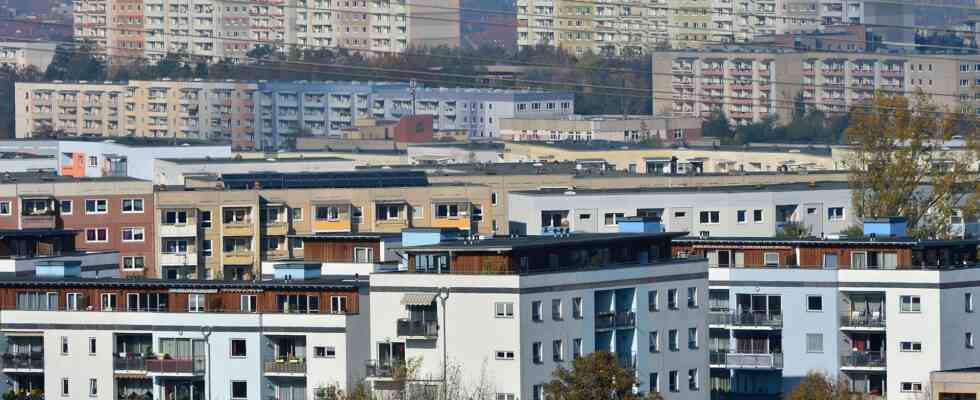Status: 11/17/2022 3:36 p.m
The number of people entitled to the new housing benefit is increasing. Construction Minister Geywitz expects delays in the processing of applications. For the CDU, this is a case of well-intentioned but badly done.
The new housing benefit promises more grants for more people and is therefore also called housing benefit plus. This plus should come at the turn of the year and is one of the central reform plans of the traffic light for more social justice, as well as citizen income. But instead of joy, CDU construction expert Jan-Marco Luczak expects that at the beginning of next year there will be “bitter disappointment among many people who have now hoped for this housing benefit, which they also urgently need”.
For the opposition politician, more applicants means more waiting time, he says ARD Capital Studio. “Of course there will be crunching and creaking, there’s no other way,” admits Building Minister Klara Geywitz (SPD). You are standing in front of a “huge mountain of files,” she told the Bild newspaper.
processing time is extended
In concrete terms, this means that if you submit an application by January 1st, the result will come in March. The housing benefit for January and February will then be paid out retrospectively. But Luczak considers that to be quite optimistic. The average processing time is already six months, in some municipalities even a year. If the circle of beneficiaries is now more than tripled from the current 600,000 to two million, it is clear: three months would not be enough. Everything will take much, much longer.
Housing benefit reform: Good idea – with many “buts”
Ten days ago, the specialist committee of the Bundestag for housing heard numerous experts. The tenor was fairly unanimous: reforming the housing allowance was a good idea. Because the housing allowance is one of the most important family and socio-political benefits, and she is very happy that this is being strengthened, according to Birgit Fix from Caritas.
But then came a lot of “buts”. The housing benefit offices are understaffed. The examination of the applications – especially the income situation – is too time-consuming. More processors are needed, appealed Hilmar von Lojewski from the German Association of Cities. According to him, even a small town like Lüdenscheid (North Rhine-Westphalia) needs 15 additional workers. For other cities like Dresden, for example, there are almost 100 additional employees – hardly realistic.
Minimum limit of 50 euros
Minister of Construction Geywitz talks to the ARD Capital Studio against it. “We now have an acute development of ancillary costs and that’s why we can’t say that we won’t put the law into effect until January 1, 2024. Then the administration would have more time to prepare, but people would definitely wait a year.”
The traffic light improved: With a preliminary decision, the offices should be relieved and be able to work faster. Should it have to be corrected later and there are repayments, a de minimis limit has been set. But the opposition politician Luczak also criticized. The de minimis limit of 50 euros is by no means sufficient. After all, housing benefit is about a few 100 euros a month.
The Federal Council is on the train
A week ago, the Union was the only parliamentary group to vote against the Housing Benefit Plus Act – although it shares the goal of increasing housing benefit. After the Bundestag, it will be the turn of the Bundesrat at the end of next week.
There are only a few weeks left before the introduction on January 1st to make the offices reasonably fit for the changeover. The housing benefit is a state subsidy for rent for households that do not receive social benefits but still have little money.
Housing benefit plus with waiting period plus
Kai Clement, ARD Berlin, 11/17/2022 4:18 p.m

